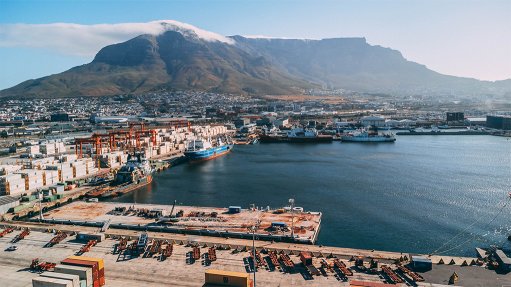Keeping it ‘clean’ is taxing
The thing with taxes is that, although everyone acknowledges the need for them, nobody would willing pay them, despite the cliché “it’s the right thing to do” being bandied about. How else do you explain high-net-worth individuals heading for, and ‘residing’ in, many an international low-tax jurisdiction? As a rule, no one likes paying taxes.
Revenue authorities are well aware of this fact, which is why they are constantly diversifying the types of taxes that they impose. Recent favourite taxes tend to play on your emotions – getting you to pay for your ‘sins’ or guilty pleasures. Since you might well be embarrassed or ashamed of your bad habit or habits, you tend not to speak up, and the revenue authorities also get support from those who are offended by your ‘sins’.
So, what better way to grow a country’s revenue base than by expanding the tax base through the imposition of more sin taxes or increasing the tax rate, or both? Not convinced? Well, four of the six sin tax proposals listed on page 16 of Finance Minister Pravin Gordhan’s 2016 Budget speech are for an increase of 30c/ℓ in the general fuel levy; the introduction of a tyre levy to finance recycling programmes and increases in the incandescent globe tax, the plastic bag levy and the motor vehicle emissions tax (a collective of taxes); the introduction of a tax on sugar-sweetened beverages; and increases of between 6% and 8.5% in the duties on alcoholic beverages and tobacco products.
In Chapter 4 of the 2016 Budget Review, titled ‘Revenue trends and tax proposals’, there are two sections: ‘Encouraging sustainable practices for a cleaner environment’ and ‘Promoting public health and social wellbeing’.
Under ‘Encouraging sustainable practices for a cleaner environment’, there are paragraphs on encouraging the manufacture of clean fuels, renewable energy incentives, fuel taxes, the proposed tyre levy, the incandescent globe tax, the plastic bag levy, and the motor vehicle emissions tax, as well as an update on the implementation of carbon tax.
Under ‘Promoting public health and social wellbeing’, there are paragraphs on taxing sugar-sweetened beverages and on excise duties on alcoholic beverages and tobacco products.
Under ‘Encouraging sustainable practices for a cleaner environment’, it is stated: “Government is committed to protecting the environment. In addition to raising revenue, environmental taxes and levies are designed to encourage businesses and individuals to make more environment-friendly decisions about their purchases and behaviour.” What is not mentioned is whether the proceeds of the revenue will be ‘ringfenced’. This simply means that the tax revenue generated from a specific externality (negative externality) will be used to remedy that specific externality. So, if, through your negative actions, you impose a cost on others, you are taxed, and the revenue generated from the tax is used to compensate others for the cost imposed on them. Alternatively, the tax revenue is used to correct the imposed cost. If the intention is not that, then the tax is merely a fiscal measure, which, I will argue, is deceptive in its application.
It is also important to know who, other than the tax authorities, are deriving a financial benefit from the imposition of the tax or levy. Take, for instance, plastic carrier bags – those that you buy at any retail store. In the instalment of this column that was published on April 17, 2015, and was titled ‘Plastic bag levy – who derives the benefit?’, I wrote that the consumer pays anything between 45c and 49c for a plastic bag. If my calculations are correct, this is a conservative profit of at least 25c per plastic bag, and considering the 2 816 666 667 plastic bags on which the levy was paid in 2013/14, a profit of R704 166 670.25 was generated. So, while government potentially collects about 7c for each plastic bag (comprising a 6c levy and potentially 1c in ordinary customs duty), the sellers of plastic bags are collecting at least 25c on each bag sold.
With this in mind, consider the relevant section in the 2016 Budget Review. Under ‘Fuel taxes’, it is stated that “[they] raise general revenue, fund compensation for road accidents, and help to address pollution and congestion [and] government proposes to increase the general fuel levy by 30c/ℓ, effective April 6”, while, under ‘Tyre levy’, it is stated: “The tyre levy proposed in the 2015 Budget is intended to reduce waste, while encouraging reuse, recycling and recovery, and discouraging disposal into landfills. This levy will be implemented at a rate of R2.30/kg of tyre, effective October 1, 2016.”
Incandescent Globe TaxWith respect to the incandescent globe tax, the Budget Review states: “An environmental levy on incandescent light bulbs was introduced in 2009 to encourage the use of more efficient compact fluorescent bulbs and reduce electricity demand. This levy was last increased in 2013. To take account of inflation, it is proposed that the levy be increased from R4 to R6 per globe, effective April 1, 2016.” This implies a 33.33% increase – not quite an inflation adjustment.
The Budget Review further states that the plastic bag levy, which has been in place for ten years, aims to counter the dispersion of plastic bags, which end up as wind-blown litter or in waste facilities. It adds: “Overall, [the plastic bag levy] has helped to reduce the production and import of plastic bags. This levy was last increased in 2013. Government proposes to increase the levy from 6c to 8c per bag, effective April 1, to account for inflation.” The retailers must be smiling.
On the motor vehicle emissions tax, the Budget Review states: “The motor vehicle emissions tax aims to encourage consumers to use more fuel-efficient, low-carbon-emitting vehicles, and manufacturers to improve fuel efficiency. To maintain this strategy, government proposes that a combined inflationary adjustment based on the 2013 to 2015 period be implemented, effective April 1, 2016. For passenger vehicles, this will increase the tax rate . . .” One question: What about second-hand vehicles? If the intention is to mitigate vehicle emissions, why not impose a higher fuel levy? This tax is a disguised fiscal measure.
The Budget Review’s update on the implementation of the carbon tax states: “The main aim of the carbon tax is to put a price on the environmental and economic damages caused by excessive emissions of greenhouse gases. A secondary aim is to change the behaviour of firms and consumers, encouraging them to use cleaner technology. Given the economic outlook, the carbon tax has been designed to ensure that its overall impact will be revenue neutral up to 2020. The draft Carbon Tax Bill was published in November 2015, with 90 comments received to date. The draft Bill will be revised, taking into account public comments and further consultation.”
The Review’s commentary on the tax on sugar-sweetened beverages reads: “Obesity stemming from overconsumption of sugar is a global concern. Over the past 30 years, the problem has grown in South Africa, which has the worst obesity ranking in sub-Saharan Africa, and has led to greater risk of heart disease, diabetes and cancer. The Department of Health has published a policy paper on the growing problem of obesity . . . Government proposes to introduce such a tax on April 1, 2017, to help reduce excessive sugar intake.” The danger of imposing a tax on an end product is that its implementation could create new externalities – including a switch from sugar to possibly equally unhealthy sugar supplements.
In line with health and fiscal policy objectives, tax rates on alcoholic beverages have been consistently increased beyond inflation since 2002. The 2016 Budget continues this trend, with excise duty rate increases between 6.7% and 8.5%.
Tobacco Products
With respect to excise duties on tobacco products, the Budget Review states: “The excise adjustments for cigarettes, cigarette tobacco and pipe tobacco are attributable to inflation-linked price increases for the most popular brands in each category. A review of tobacco product taxation will begin in 2016/17, and will consider both existing and nontraditional tobacco products and their alternatives, such as e-cigarettes.”
Comments
Press Office
Announcements
What's On
Subscribe to improve your user experience...
Option 1 (equivalent of R125 a month):
Receive a weekly copy of Creamer Media's Engineering News & Mining Weekly magazine
(print copy for those in South Africa and e-magazine for those outside of South Africa)
Receive daily email newsletters
Access to full search results
Access archive of magazine back copies
Access to Projects in Progress
Access to ONE Research Report of your choice in PDF format
Option 2 (equivalent of R375 a month):
All benefits from Option 1
PLUS
Access to Creamer Media's Research Channel Africa for ALL Research Reports, in PDF format, on various industrial and mining sectors
including Electricity; Water; Energy Transition; Hydrogen; Roads, Rail and Ports; Coal; Gold; Platinum; Battery Metals; etc.
Already a subscriber?
Forgotten your password?
Receive weekly copy of Creamer Media's Engineering News & Mining Weekly magazine (print copy for those in South Africa and e-magazine for those outside of South Africa)
➕
Recieve daily email newsletters
➕
Access to full search results
➕
Access archive of magazine back copies
➕
Access to Projects in Progress
➕
Access to ONE Research Report of your choice in PDF format
RESEARCH CHANNEL AFRICA
R4500 (equivalent of R375 a month)
SUBSCRIBEAll benefits from Option 1
➕
Access to Creamer Media's Research Channel Africa for ALL Research Reports on various industrial and mining sectors, in PDF format, including on:
Electricity
➕
Water
➕
Energy Transition
➕
Hydrogen
➕
Roads, Rail and Ports
➕
Coal
➕
Gold
➕
Platinum
➕
Battery Metals
➕
etc.
Receive all benefits from Option 1 or Option 2 delivered to numerous people at your company
➕
Multiple User names and Passwords for simultaneous log-ins
➕
Intranet integration access to all in your organisation


















